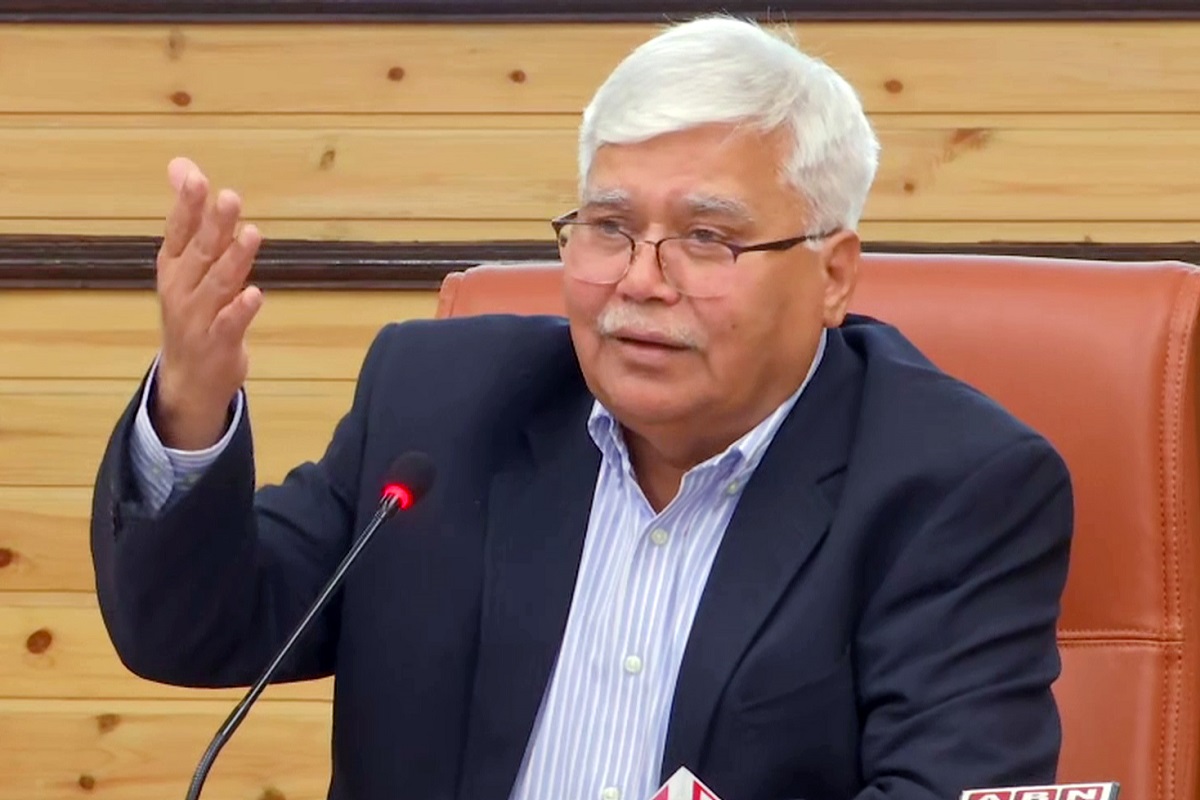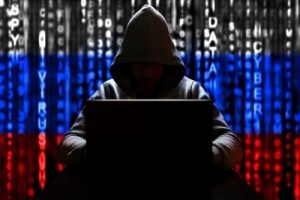In an exclusive interview, Dr R S Sharma, CEO of National Health Authority and Co-Win In-charge, shares his joy and struggle over the achievement of 100 crore successful vaccinations in India.
The CEO talks with Swimmi Shrivastava about his experiences and answers queries related to the Co-win vaccines.
Q. As India reaches the 100 crore vaccinations milestone, can you explain the role of Co-WIN in this drive?
Ans. To understand the value of Co-WIN, imagine the possibilities of what might have happened if we didn’t have this digital backbone for our vaccination drive. Amid the uncertainties and scarcity of vaccines in the rapidly shifting realities of the pandemic globally, it was imperative to track and trace the process of vaccination at a granular geographical level.
Particularly in the context of our country, with a diverse population with multiple languages and cultures, could we have expected people to remember whether they took Covaxin, Covishield or any other available vaccine, without confusion? Could we have expected people to adhere to timelines between doses when the recommended interval between doses itself was changing?
To expect people to turn up at the same centre for their second dose would have caused inconvenience, particularly to the mobile population. Also, with two different vaccines with their own set of specifications and timelines between two doses, one couldn’t have ruled out mix-ups in a manual system.
Moreover, for such new vaccines, to keep individuals fully protected as well as understand the effects of vaccines on a larger population, the recording of adverse events following immunization (AEFI) was non-negotiable. On digital certificates, while it wasn’t fully clear at the outset as to how they would be used, it is more than evident now, from international/domestic travel to keeping workplaces safe, proof of vaccinations is much in demand.
All of this had to be achieved at scale and with speed, and it was unthinkable for a manual system to cope with this. Going from zero to a billion vaccinations in nine months, Co-WIN mastered scale and speed efficiently.
Q. How did Co-WIN bring transparency to the drive?
Ans: At the core, it reduced the information asymmetry between people and the system, democratising the vaccination drive. Starting from informing small but crucial details like where the vaccination is happening closest to beneficiaries’ homes, to ensuring that the scope of any black-marketing is almost obliterated, Co-WIN kept all stakeholders aligned and the system transparent.
From our experience, we know how scarce and valuable commodities become susceptible to leakage, rent-seeking, and other unfair practices, particularly during times of crisis. By tracing the vaccine end to end, accountability was built into the system by design. Also, everyone from a VIP to a common individual stood as one in front of the tech platform. In that sense, Co-WIN proved to be a great leveller, which made sure access to a life-saving resource is not determined by privilege, but by eligibility.
And the only factors for eligibility were defined by the COVID-19 vaccine administration policy, which started with the profession – Healthcare Workers and Frontline Workers (HCWs and FLWs) and later evolved based on age and comorbidities. Always keeping the most vulnerable to the virus at the forefront!
Q. But what about the digital have-nots in the country, were they not at a disadvantage because of Co-WIN?
Ans: The debate on digital have-nots is unfounded. We were very mindful of the digital divide right from the beginning and designed the system in a way that everyone’s data will be digitised, with the only difference being the point of digitisation. This basically meant that one set of people will log in and book their appointment on the Co-WIN portal and start the process of self-digitisation at this point of booking.
A larger subset of people will walk in without digital appointments and the in-charge at the COVID-19 Vaccination Centres (CVCs)will assist with their registration on Co-WIN. Approximately 70% of all vaccinations administered were through walk-ins, without any digital appointments, and their data was digitised at the CVCs. In addition to this, an assisted mode of registration has also been in play through the 240,000+ Common Service Centres (CSCs) and a call-centre operated by the National Health Authority (NHA), with the helpline number 1075.
The Co-WIN platform has been constructed to be inclusive in a multitude of ways. It has been made multi-lingual, offers services in as many as 17 languages. With over 118 crore mobile connections in the country, we kept mobile phone number as the registration gateway, with an option to add up to four beneficiaries on every number. The data inputs expected have been absolutely minimal, with name, age and gender as the only inputs required. For the purpose of identification, Aadhaar has been recommended due to its digitally robust authentication system and coverage of over 130 crore across the nation. Additionally, 8 more options of identification have been provided for a truly inclusive approach.
Co-WIN is also inclusive in a technological sense, as the architecture has been made open and interoperable. We were conscious of the fact that once the vaccination drive scales, state governments, hospital & laboratory chains, and other third parties may want to help in increasing the outreach of the vaccination drive, and, naturally, may want to use their own systems. To maintain Co-WIN as the single source of truth, we have exposed all the APIs to let other applications integrate with Co-WIN seamlesslyto suit their needs, in a regulated manner.
It’s for this reason that we have a growing list of hundreds of partners from different sectors including the likes of Health Missions of various state governments, Infosys, Max Healthcare, Apollo Hospitals, PayTM, WhatsApp, travel portals and many others.
Q. So it’s right to describe Co-WIN as a product of constant improvisations? What are some interesting features that got added to Co-WIN as a response to emerging needs?
Ans. Absolutely, Co-WIN is designed to be dynamic, and evolves based on people’s demands and feedback. Therefore, it’s correct to call it a product of constant improvisation and continuous adaptation—based on the rules framed by the government, and ground-up feedback. For instance, features were added when the government expanded from immunising HCWs and FLWs to vulnerable populations based on age and comorbidities.
More importantly, we have been proud of the people-centricity of the platform. Besides, the choice of brand of vaccine, the portability feature allowed the freedom to individuals to choose when and where they wanted to take their first and second jab. Secondly, we observed that there were scenarios where people were using different mobile phones to register for their first dose and second dose. Initially, the platform didn’t have the system to reduplicate, however, it evolved to subsequently allow them to merge and create a complete two-dose digital vaccination certificate. There were scenarios where incorrect mobile phone numbers had been mapped to individuals, so a functionality to correct that was provided on the system. The biggest boon being that all these functionalities were provided as an automated digital service on the Co-WIN platform, removing manual intervention.
Cognizant that as socio-economic activities open up, employers, public transport authorities, travel establishments and the likes may wish to know the vaccination status of people, ensuring safety for all. To cater to the same, we recently launched the KYC-VS service, or the Know-Your-Customer’s/Client’s-Vaccination-Status. Using the beneficiary’s mobile number, the provider would seek the beneficiary’s consent through an OTP and get to know their vaccination status with 0, 1 or 2 response (0 – not vaccinate, 1 – partially vaccinated, 2 – fully vaccinated), without receiving any additional information about the beneficiary.
With a view on international travel, from the very start we had participated in various discussions taking place globally on vaccination certificates, ensuring we stayed compliant with the WHO-DDCC data dictionary. At a time when most countries were issuing manually signed hand-written certificates, even the first vaccination in India was issued a digitally signed and verifiable vaccination certificate through Co-WIN. So as international travel started to open up, we were already prepared to provide a globally authenticable certificate, along with a verification facility on the Co-WIN portal.
Initially, we noticed that individuals were asking to link their passport numbers to their vaccine certificates. Consequently, we came up with a feature to allow individuals to link it on the portal at their own convenience. As various nations came out with requirements of date of birth in the vaccination certificate, we provided the feature to download an international version of the certificate on the portal, where one could add their date and month of birth.
Q. Now the country plans to offer Co-WIN free of cost to other countries as well?
Ans: Looking at the way Co-WIN empowered our own vaccination drive, our Hon’ble Prime Minister directed us to share this resource with the world. Co-WIN is India’s digital gift to the world. Following our Prime Minister’s vision and direction, we hosted a global conclave on Co-WIN on July 5, 2021, where 141 countries from around the world participated, some of whom were even represented by their ministers.
Now, we are in the process of signing an MoU with one such attendee country and are in discussion with close to a dozen others, who are keen to adopt the platforms to their contexts. The country is proud of this Made-in-India product that has proved its mettle at home and is now all set to go places.
Further, with its proven success in enabling the delivery of 100 crore vaccinations, Co-WIN is now being envisaged as a digital vehicle for universal vaccination and blood donation, and may also be considered for organ donation in the future. The possibilities are endless, but the focus still remains on serving the larger public good – today for India, and tomorrow for the world!












